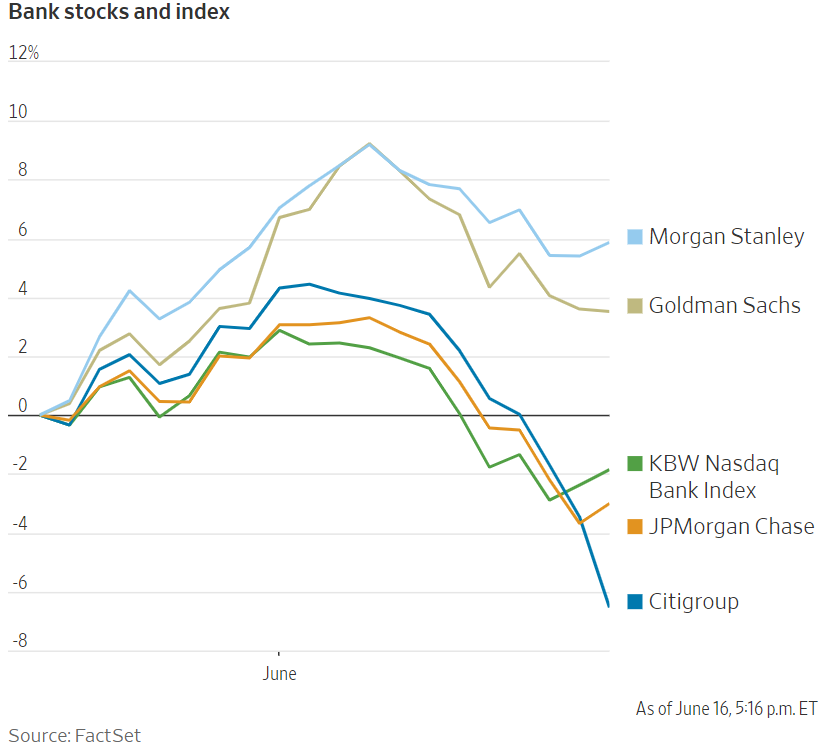The Wall Street boom is petering out at U.S. banks.
For much of 2020 and through the first quarter of this year, the biggest U.S. banksposted blockbuster resultsfrom trading stocks and bonds and advising companies on deals. The Federal Reserve flooded the market with money, companiesraced to sell new debtand go public, andtraders on Redditand from big institutions moved those securities quickly. Banks at the middle of all of those transactions reaped the rewards.
Now, executives are warning that their market revenue is tumbling, at least compared with the past year.
JPMorgan Chase & Co. Chief Executive James Dimon said at a financial conference this week that his firm’s trading revenue, both fixed-income and equities, would be over $6 billion in the second quarter. That would be down some 38% from the year-ago period, whenthe bank made a record $9.7 billion.
“Still pretty good” is how Mr. Dimon described it. Indeed, $6 billion would have been near a quarterly record at any time before 2020.
CitigroupInc.Chief Financial Officer Mark Mason warned second-quarter trading revenue will be down about 30% from the prior year, with a drop-off in fixed-income trading.
Bank executives have warned in recent quarters that their substantial gains didn’t seem sustainable.Morgan StanleyCEO James Gorman said this week that revenue from fixed-income trading would slip, but that it appeared things were normalizing.
“Obviously, it won’t be where we were in the first quarter, which was gangbusters, or a year ago,” Mr. Gorman said. “They were the two best quarters by far in our history, but certainly not a bad quarter and some really encouraging signs.”
Messrs. Gorman and Dimon both said deal-making revenue could remain strong for the quarter.
The figures, while arguably bleak, aren’t worse than analysts had expected. Revenue for Wall Street banks is widely forecast to fall this quarter.
Bank shares have been ona record pace to start the year, and turned around recent declines Wednesday afternoon when the Fed signaled it may increase interest rates sooner than expected. Increased interest rates can translate into higher lending margins for banks.
For the year, the KBW Nasdaq Bank Index is up 31% while the S&P 500 has risen about 12%, though the bank index has underperformed so far in June.
JPMorgan and Morgan Stanley eked out small gains Wednesday after falling earlier in the session. Citigroup shares slid 3.2% to $71.46, marking their 10th straight decline. They have lost 10.5% over that time.


